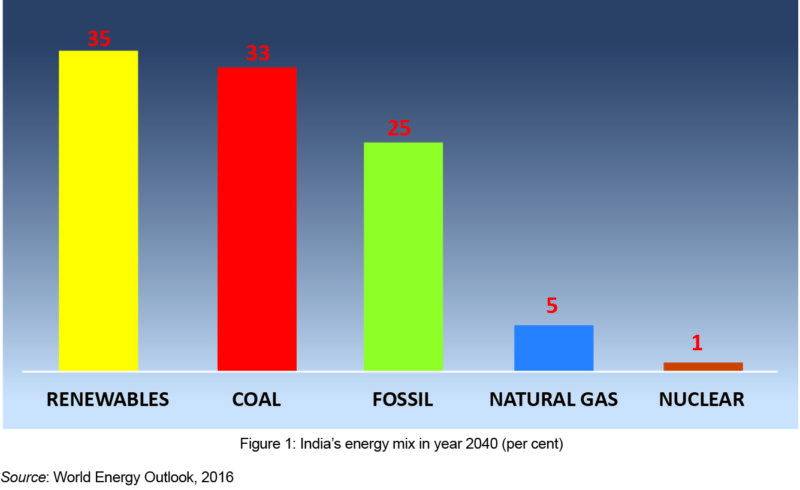“I think there are more politicians in favour of electric cars than against. There are still some that are against, and I think the reasoning for that varies depending on the person, but in some cases, they just don’t believe in climate change—they think oil will last forever.” — Elon Musk, CEO of Tesla Motors and SpaceX
Are we seeing any changes in the way people address the global warming crisis, or are we yet to see them? That is the question. Whether you happen to be optimistic or not about the world’s response to climate change, there is little doubt that the world is moving briskly towards a greener culture. From how we grow our food to how we make our cars, we are going green. We are also, slowly but surely, committing ourselves to a greener future, backed by the agreements that nations are signing to make this happen.
India is committed to the Paris Agreement on climate change, and the government is taking quick steps towards complying with its requirements. This April, Union Coal and Power Minister Piyush Goyal stated that India will turn into a 100 per cent electric vehicle (EV) nation by 2030! As a follow up to this commitment, the National Electric Mobility Mission Plan (NEMMP) has made a roadmap that envisions the country building up its capabilities sufficiently to manufacture 7 million electric and hybrid vehicles by 2020. This would really help to cut down the import of fossil fuels, and reduce the pressure that the oil bill places on India’s foreign exchange reserves.
It is anticipated that our dependence on other forms of fuel will increase too, and renewable energy sources will play a huge role in the nation’s march into the future. If such projections hold true, it will be a marked improvement from India’s current state of heavy dependence on fossil fuels.
The graph in Figure 1 indicates that renewables will be the main source of energy and power in India by 2040, with a 35 per cent share. If the government vision of 100 per cent EVs by 2030 turns into reality, these vehicles will play a big role in the renewable energy sector.

Now, let’s take a broader view, and consider the leading countries in the world that have taken to EVs and contributed to this segment’s growth.
China
This is a country that has challenged the norms in every industry. In every field, it has rewritten the rules and emerged as a leader and, hence, is unlikely to get left behind in the EV race! China has easily overtaken USA in this field because of the increased adoption of EVs, both in terms of manufacturing capabilities and usage within the country. And government policies conducive to environment protection have helped in its adoption.
There are cities in China that have strict rules for new vehicle purchase and retrenchment. And above all, China is a leader in the deployment of electric public buses. This has been helped by the government’s involvement in creating the relevant infrastructure across multiple destination points. This is proof today that even large economies heavily invested in legacy systems dependent on fossil fuels can adapt to change if there is a strong political will.
But do we want to follow the China example, because there have been some fallouts to China’s speedy adoption of EVs. A recent report from Amnesty International is a dampener for those eager to emulate China’s example. The report stated that China’s Huayou Cobalt Company relies heavily on child labour and slavery to mine cobalt used by the Li–ion battery manufacturers, including Korean giants like LG and Samsung. If such inhuman practices are adopted to fuel growth, we need to question the Chinese logic.
China’s growth in the electric vehicle sector started in 2012, with sales of just 3000 EVs —a paltry figure that has nevertheless propelled the country into topping the world charts in terms of EV adoption and usage. As I write this article, I am being updated by my international bureau that Chinese companies like BYD, a leading manufacturer of buses, are building up a manufacturing presence in countries like Thailand, Brazil and US, which means that they are now looking at creating brands for global markets. Other firms like Foton Buses have gone a step ahead in EV innovations, using the Microvast technology in their batteries, which enables ultra-fast charging.
These are good days for the Chinese EV industry, and many new entrants like Kandi Panda are completely overhauling the way people travel today. These companies are differentiating their products on the basis of low costs and a low carbon footprint in the congested Chinese cities. And going forward, there may be a day when Interbrand will report a Chinese EV manufacturing brand among the Top 10 list of global EV brands.
Norway
‘’Next year, Norway’s EV boom will bust!” That’s a thought many people express in Europe. But yet, every year, Norway comes up trumps in this field. From a mere 3 per cent share of the country’s auto market in 2012, EVs today account for 31 per cent of Norway’s automotive market. That’s a massive change, which has been driven by some innovative thinking and infrastructural changes. Oslo, the capital of Norway, boasts of bus lanes dedicated to EVs, which also support the recharging infrastructure. The initiative of turning the country green started back in 1990, when the Gulf War was at its peak. Norway was thinking differently even then, formulating a vision to change systems and practices, so that innovation happens. Today, most Scandinavian countries are following suit. They are building congestion-free environments, with privileged parking and toll-free services for EV owners. That’s the reason why Norway boasts of the highest per capita number of EVs in the world — more than 100,000 for 5.2 million people. It is a clear pacesetter in Europe, which now has more than half a million EVs on the road. Experts believe 2017 could be the take-off year for Europe.
Another aspect in favour of EV adoption across Norway is the way the country is creating renewable resources from existing, mundane properties by balancing natural beauty with energy needs. Traditionally, power generation stations are huge monoliths, requiring large spaces and manpower to drive growth. But Norway has changed this paradigm, by using old structures and innovative mechanisms to generate energy. For instance, Ovre Forsland is a small hydraulic power station located in Helgeland district, and has been created scenically on the riverbed at the edge of a forest. It can supply energy to 1600 homes. This is a departure from the norm and is an example of the many ways Norway and the other Scandinavian countries are approaching energy generation. Statistics indicate that the Netherlands is going to follow Norway very soon in its endeavour to become a self-powered EV nation.

United States of America
Buoyed by a 37 per cent year-on-year increase in sales between 2016 and 2017, USA seems like it is getting back to where it was in terms of EV sales pre-2014, after which it started to decline. By the end of 2016, with 30 different EV products, and sales of 150,000 cars, US EV markets look promising again. California is the state that has taken the lead in the country in terms of sales, due to its ‘zero-emission vehicle’ mandate.
Certain factors that help make the US a lucrative EV market are:
• Tax breather for EV owners and manufacturers
• Research and development taken up by the government
• Reduction in the cost of batteries and ancillaries associated with the industry
• Support infrastructure for the EV industry
• Adoption of green fuel technology and renewables
• Powerful batteries that last longer and allow driving at higher speed
It will be interesting to watch whether USA will lead the EV race with its Tesla cars, or concede the top spot to China and play a waiting game.
India: Addressing the challenges
Today, India is poised for growth in the EV sector. And since it’s still at a nascent stage in the EV adoption curve, there are numerous opportunities to look at. Will India follow a hybrid market structure, or will it carve a niche for itself in electric vehicles? Professor Ashok Jhunjhunwala from IIT Madras has been given the mantle to lead India in the EV domain, so we should expect some interesting innovations to emerge over the next few years.
Right now, India is facing some very serious challenges, which need to be addressed quickly if we are to grow at the pace envisaged by the year 2030.
• Higher cost of acquiring an electric vehicle: This is a big challenge, which stakeholders need to come together and address. While the running cost of an EV may be less than cars running on fossil fuel, the current high cost of acquisition needs to be addressed for adoption to speed up.
• Lack of the support ecosystem and strong guidelines from the government
• Inadequate parking and charging facilities: Currently, this is primarily being driven by the unorganised sector.
• Unavailability of the appropriate electricity grid network
• The lack of awareness and belief in the feasibility of electric vehicles: This is a tricky one. Unless the major players in the automobile sector come together, people may not have much confidence in EVs, as it is the big brands that will bring in the new technology. And USA’s General Motors wanting to shut shop in India doesn’t augur well for India in terms of global investments.
• Lack of attractive offers and customer engagement initiatives• Lack of service networks: Maybe this can be driven by the government with the support of a major service partner or manufacturer who has a pan-India presence.
Here are a few suggestions that I feel would go a long way in addressing these issues and promoting the rapid growth and acceptance of electric vehicles in the country, besides encouraging businesses to enter this domain.
• Central and state policies favouring the adoption of electric mobility — financial subsidies, non-monetary incentives and/or restrictions and penalties.
• PPP model for setting up charging facilities and parking infrastructure.
• Reducing the dependence on Li-ion batteries by exploring alternative renewable energy options.
• A model project which can be funded by the government in certain states/cities under the ‘Smart Cities’ programme, and then extended across the country. This should encompass some model villages as well, such as those that have a high per capita agricultural output.
• Incubation facilities for EV enabled businesses, as have already been set up successfully in various cities in the world including Shanghai, Amsterdam, Los Angeles and Barcelona. Taking a cue from these global cities, the Central and state governments could partner to set up such facilities in Indian cities like Ahmedabad, Bhubaneswar, Ranchi, Dharamshala, etc.
• Creation of technology platforms and awareness programmes at B2B and B2C levels.
• Creation of state funded sales support networks, which can have public private partnerships.
Before leaving readers with these recommendations, I would like to ask a simple, thought-provoking question: “How will the rapid growth of electric vehicles affect the demand for crude oil over the next few years?”








